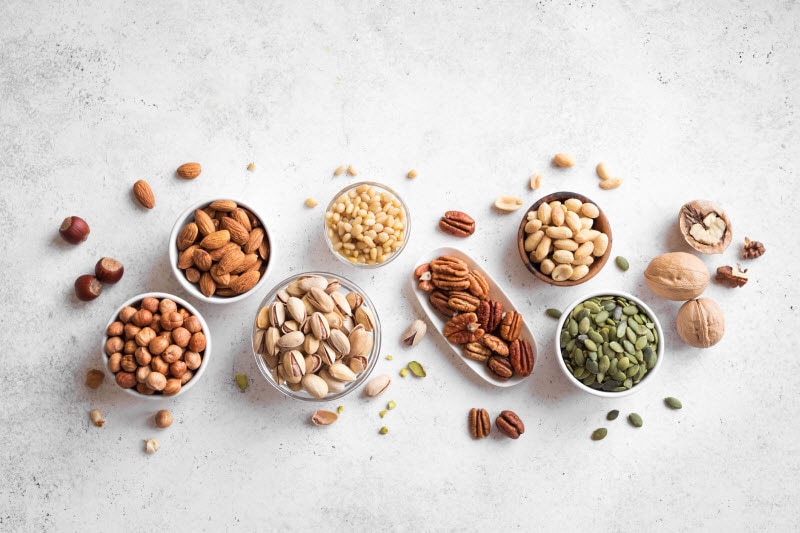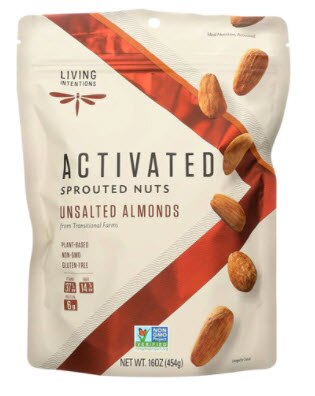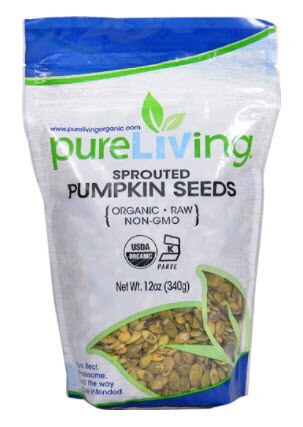If you’re someone who follows a plant-based diet, or has simply been trying to include more plant foods into your meals, you may have heard of something called “anti-nutrients,” which has likely raised some questions.
This guide will help explain what exactly anti-nutrients are and the pros and cons associated with them — plus, it will help you determine whether avoiding them is really necessary.
What are anti-nutrients?
An “anti-nutrient” is a compound found in plants that works against the function of nutrients. Anti-nutrients serve as a natural defense mechanism for plants to help them resist bacterial infections or from being eaten by insects. While this is beneficial for the plant, anti-nutrients are believed to interfere with your body’s ability to absorb and use certain nutrients like vitamins and minerals when eaten.
Some of the most common anti-nutrients include:
- Lectins-primarily found in legumes including beans, peanuts, and soybeans as well as in whole grains and some nuts and seeds.
- Phytates (also called phytic acid)-also found in legumes, nuts, seeds and many whole grains.
- Oxalates-found in leafy green vegetables, potatoes, coffee and some teas.
- Tannins-found in tea, whole grains, cocoa, and fruits including berries, apples and grapes.
- Phytoestrogens-found in soy and soy products, flaxseeds and small amounts in nuts and some fruits and vegetables.
Are ant-nutrients harmful?
There is a lot of controversy surrounding the consumption of anti-nutrients. Depending on what you read (and where you read it), you may be led to believe they are extremely harmful substances or are things that can significantly improve your health. So what should do you believe?
Here are some of the pros and cons to consider:
Pros
- Anti-cancer effects. Multiple studies show that a plant-based diet rich in foods containing anti-nutrients reduces the risk of some cancers.
- Supports the immune system. The growth of fungi, bacteria and viruses may be inhibited by some anti-nutrients.
- Serve as antioxidants. Antioxidants help fight off free radicals that can arise from toxins and damage DNA and parts of your cells. Frequent or excessive exposure to free radicals can lead to disease, so antioxidants are a crucial component of good health.
- Provides a source of dietary fiber to the diet. Fiber supports numerous processes in the body including blood sugar control, lowering cholesterol levels, supporting a healthy gut microbiome for proper digestion and appetite control for weight management.
Potential cons
- May interfere with the absorption of some minerals like calcium, iron, phosphorus and zinc.
- May be hard to digest and contribute to altered gut function in some individuals.
- Excessive intake of some anti-nutrients, specifically oxalates, may contribute to kidney stones for sensitive people.
- Phytoestrogens may serve as endocrine disruptors, which are things that interfere with the normal functioning of hormones.
Keep in mind, though, that the potential downsides of anti-nutrients may only apply when they are eaten in very large amounts, or on their own versus as part of a balanced meal or snack. The degree to which they may interfere with nutrient absorption is also unknown, and they may act differently in different individuals.
Should you avoid anti-nutrients?
Anti-nutrients are the cornerstone of a plant-based diet. Plant-based diet benefits are well documented, and the diet is consistently recommended as a method of both treating and preventing many health conditions. Avoiding anti-nutrients would mean avoiding many nutrient-rich foods that play a role in your health.
Despite some of the possible negative health effects of anti-nutrients, most research concludes that the benefits of consuming them within the context of a balanced diet far outweigh the risks. In addition, studies done on people who eat diets rich in plant foods and anti-nutrients do not generally have mineral deficiencies or any of the other negative health effects associated with them, which may indicate that your body may be able to adapt to eating them.
However, there are some individuals and certain health conditions that may be more susceptible to anti-nutrients and may warrant reducing certain foods containing anti-nutrients for a period of time.
These people may include:
- Those prone to calcium oxalate kidney stones
- People with significant digestive problems that are not able to be managed by other methods
- People with serious health conditions caused by mineral deficiencies, such as calcium in osteoporosis, or iron-deficiency anemia
People with these conditions or who have other concerns about anti-nutrients should reach out to a health professional for guidance on whether to include them in their diet. Sensitive individuals may benefit from avoiding eating large quantities of foods containing anti-nutrients at one time, and only eat them alongside other nutrient-rich foods rather than in isolation.
How to reduce anti-nutrients in your food
Even though anti-nutrients are not a problem for most people, there are certain things that can help reduce their presence in foods. This can help promote tolerance and lower the risk of any possible health interferences.
Ways to reduce anti-nutrients in food include:
- Soaking the food for multiple hours before cooking or consuming it
- Purchasing sprouted or fermented versions of certain grains, vegetables and legumes
- Boiling the food
In summary
Anti-nutrients are not a major concern for most people, and the benefits of eating them as part of a balanced diet far outweigh any potential downsides. Instead of fearing individual nutrients or ingredients in any given food, focus on eating a wide variety of fresh foods from all food groups to promote your best health.



